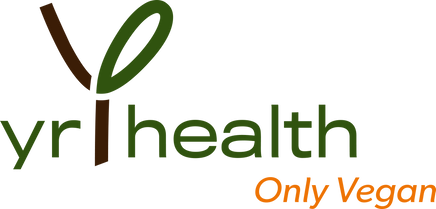on Orders over £25

What Is Choline? + Why It Matters for Your Health
Choline is a lesser known essential nutrient often grouped with B vitamins, although it’s not actually classified as a vitamin. It plays a key role in overall wellness but is often overlooked when speaking about vitamins, minerals, supplements, and nutrition. This article covers everything you need to know about choline, including how to include it in your diet and supplement routine for optimal intake.
What Is Choline?
Choline is a water-soluble nutrient important for cell structure, brain function, and metabolism, among other vital bodily functions. It isn’t a vitamin, but is often described as a ‘vitamin-like’ nutrient. While your body can make some choline, the amount it can produce is not enough. Therefore, like many other key nutrients, some of it must come from your diet and supplements. Adults typically need around 425–550mg of choline per day, though individual requirements can vary based on factors like age and gender.
The role of choline in the body
Here’s a closer look at the key roles choline plays in your body:
- Brain & Nervous System Support: Choline is essential for producing acetylcholine, a neurotransmitter involved in memory, mood, and muscle control. It helps maintain healthy communication between nerve cells and supports normal brain function throughout life.
- Liver Function: Choline plays an important role in fat metabolism, helping the liver process and transport fats efficiently. This supports normal liver function and helps prevent fat build-up in the liver.
- Cell Structure: Choline is a vital component of phospholipids, which form and protect cell membranes. This helps keep cells stable, flexible, and functioning properly.
-
Energy & Metabolism: Choline supports the body’s ability to convert fats into usable energy, aiding in normal metabolism and helping the body make the most of nutrients from food.
Choline and a plant-based lifestyle
While there are some plant-based sources of choline, it’s found most abundantly in animal-based foods, making it harder to maintain optimal choline levels on a vegan diet. Some examples of plant-based foods you can include to boost your choline intake include broccoli, soybeans, shiitake mushrooms, brown rice, sunflower seeds, and peanuts. Being mindful of your dietary intake of choline each day by adding choline-rich foods to your routine can help improve your overall wellbeing.
If you’re concerned about getting enough each day from your diet alone, taking supplements that contain choline helps to bridge any potential nutritional gaps. For example, our Advanced Liver Complex contains 83mg of choline, giving you a healthy boost without replacing or overpowering dietary choline.
Key takeaways
Here are the key points to remember about choline:
- Choline is an essential, water-soluble, vitamin-like nutrient.
- It’s crucial to incorporate choline into your diet as your body cannot produce enough on its own.
- Adults typically need around 425–550mg of choline per day, though individual requirements can vary.
- Choline supports various organs and bodily functions, including the brain/nervous system, liver function, cell structure, metabolism, and energy.
- While choline is found in higher quantities in animal-based foods, it can be incorporated into a plant-based diet with foods like broccoli, soy beans, and brown rice.
- As it’s harder to get enough choline on a plant-based diet, supplements containing it can help bridge nutritional gaps.

